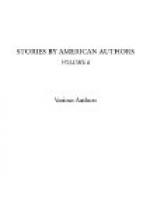She resolved, in the most radical sense of the word, to be alive. She jotted on some ivory tablets, with a gold pencil, a number of hints to assist her in her observations. For example: “Phrenological development; size of cells; ounces of solid and liquid; tissue-producing food; were mirrors allowed? if so, what was the effect? jimmy and skeleton-key, character of; canary birds: query, would not their admission into every cell animate in the human prisoners a similar buoyancy? to urge upon the turnkeys the use of the Spanish garrote in place of the present distressing gallows; to find the proportion of Orthodox and Unitarian prisoners to those of other persuasions.” But beside these and fifty other similar memoranda, the enthusiast cast about her for something practical to do.
She hit upon the capital idea of flowers. She at once ordered from a gardener of taste two hundred bouquets, or rather nosegays, which she intended for distribution among the prisoners she was about to visit, and she called upon her father for the money.
Then she began to prepare her mind. She wished to define the plan from which she was to make her contemplations. She settled that she would be grave and gentle. She would be exquisitely careful not to hold herself too much aloof, and yet not to step beyond the bounds of that sweet reserve that she conceived must have been at once Miss Crofutt’s sword and buckler.
Her object was to awaken in the most abandoned criminals a realization that the world, in its most benignant phase, was still open to them; that society, having obtained a requital for their wickedness, was ready to embrace them again on proof of their repentance.
She determined to select at the outset two or three of the most remarkable monsters, and turn the full head of her persuasions exclusively upon them, instead of sprinkling (as it were) the whole community with her grace. She would arouse at first a very few, and then a few more, and a few more, and so on ad infinitum.
It was on a hot July morning that she journeyed on foot over the bridge which led to the prison, and there walked a man behind her carrying the flowers.
Her eyes were cast down, this being the position most significant of her spirit. Her pace was equal, firm, and rapid: she made herself oblivious of the bustle of the streets, and she repented that her vanity had permitted her to wear white and lavender these making a combination in her dress which she had been told became her well. She had no right to embellish herself. Was she going to the races or a match, or a kettle-drum, that she must dandify herself with particular shades of color? She stopped short, blushing. Would Miss Cro——. But there was no help for it now. It was too late to turn back. She proceeded, feeling that the odds were against her.




